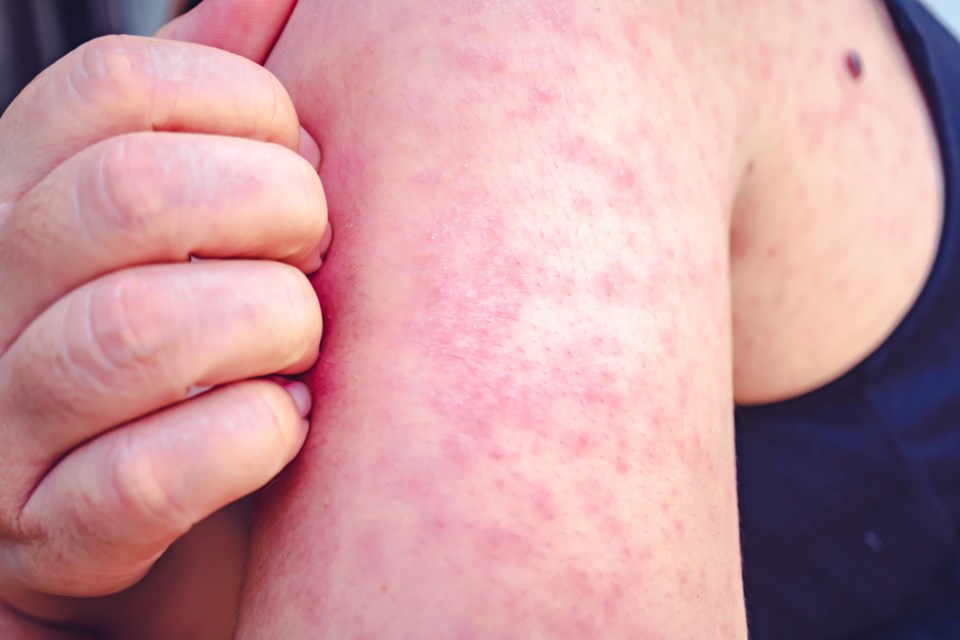THUNDER BAY — Even though it's been 28 years since the last reported case of measles in the Thunder Bay region, health officials say it's important for local residents to ensure their vaccinations are up to date.
Ontario's current measles outbreak is projected to continue into the summer.
The disease can lead to pneumonia, inflammation of the brain, and death.
As of Wednesday, there have been 661 cases in the province since the outbreak started in October 2024, including 52 requiring hospitalization.
Measles is a highly contagious respiratory infection that can be spread by coughing or sneezing into the air.
The virus can also be picked up by touching one's eyes, nose, or mouth after making contact with an infected surface.
Symptoms include fever, a cough, red watery eyes, a runny noses and a red blotchy rash that starts on the face and spreads to the body and limbs.
The last known case in the Thunder Bay area involved a young male in 1997.
"I don't have any clear indication as to why we haven't been affected by the outbreak yet, considering that people travel just as much from Thunder Bay and northwestern Ontario as other parts of the province," said Karen Battigelli, manager of the infectious disease program at the Thunder Bay District Health Unit.
"There's an outbreak heavily affecting areas of southwestern Ontario. Perhaps, with more travel between communities there, they're seeing more cases, whereas we travel long distances to get to other health unit jurisdictions."
Battigelli also noted this part of the province has "fairly decent" immunization rates in young children.
But she said younger children who either haven't been immunized yet or are not due yet to be immunized, and immunocompromised individuals, are at risk of developing more severe disease if they are exposed.
Public Health Ontario says vaccination is the best protection, and that for children and most adults born after 1970, this means receiving two doses of measles-containing vaccine.
"Those who are at greatest risk of exposure, so those travelling to areas where measles does exist, should receive two doses of an MMR vaccine," Battigelli emphasized.
She strongly recommends people ensure their vaccinations are all up to date.
"It's a highly effective vaccine. We'd like to see the number of measles cases start to come down within the province, the country and the world overall, and that will happen through vaccination."
Dr. Kieran Moore, the province's Chief Medical Officer of Health, has said he's encouraged by the recent trend.
"Normally, in an outbreak it would go in a very escalating, rapid fashion, but we're seeing stable numbers week after week, which gives us hope," he said last week.
There were 89 new cases last week, and about 100 the week before.
"We're finding it's not accelerating," Moore said. "So that's probably thanks to the great work in communities to try to limit spread, as well as our messaging with local public health agencies to affected communities and health system preparedness."
Battigelli added "We're hanging on tight to the fact that our immunization rates are good, and only to get better through the Immunization of School Pupils Act, which is now in effect with the local school boards."
That act provides for a 20-day suspension for students who are not fully vaccinated against multiple diseases, unless they have received an exemption.
In a recent interview with the Globe and Mail, Dr. Moore said he supports allowing unvaccinated children to attend class provided their parents have done the paperwork required for exemptions based on philosophical or religious grounds.
“We have to respect their opinion and have to work with the community to ensure that they’re aware of the benefits of the vaccine,” he told the Globe. “We need to communicate effectively, address hesitancy, answer their questions and remain partners in this outbreak management in the community.”
